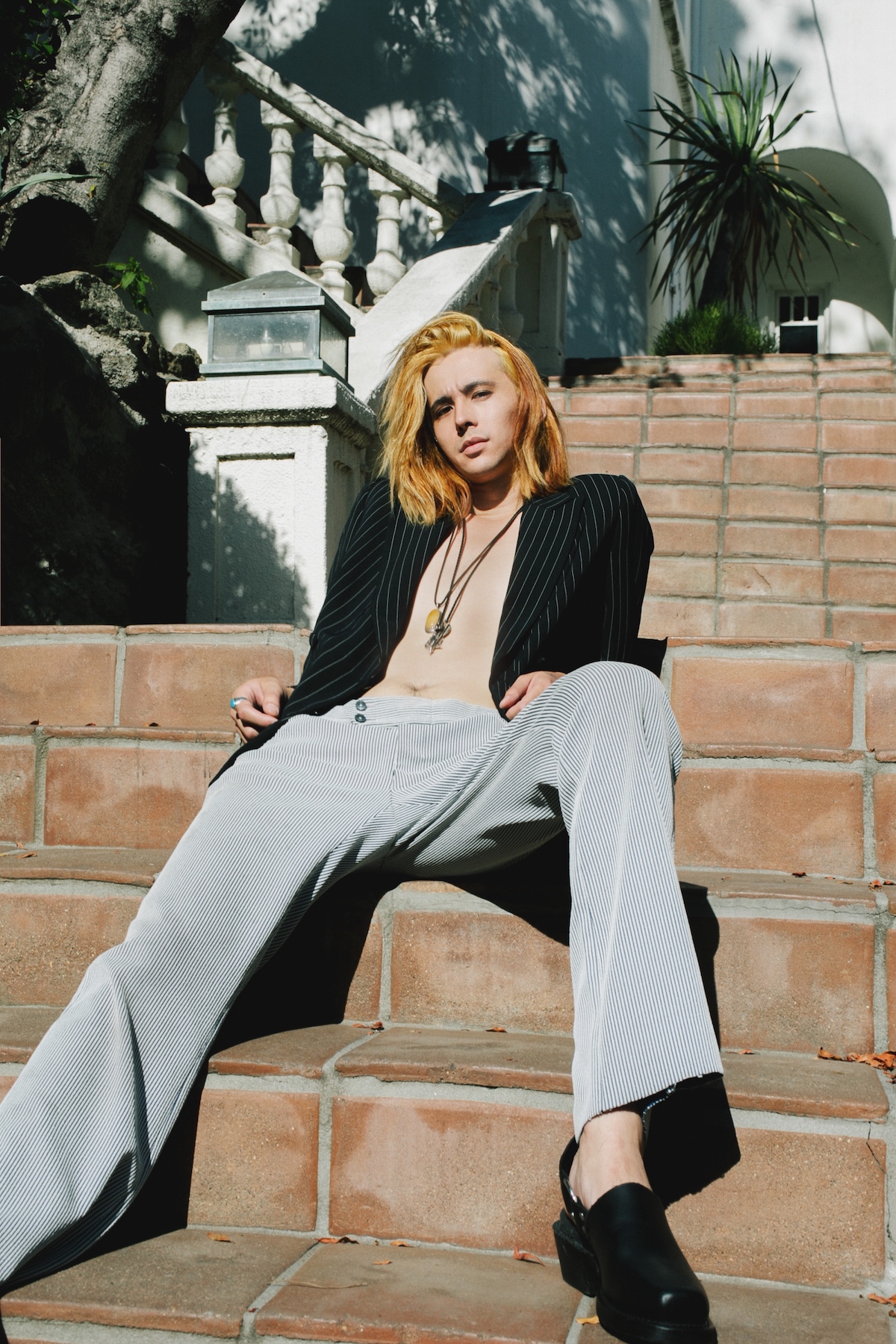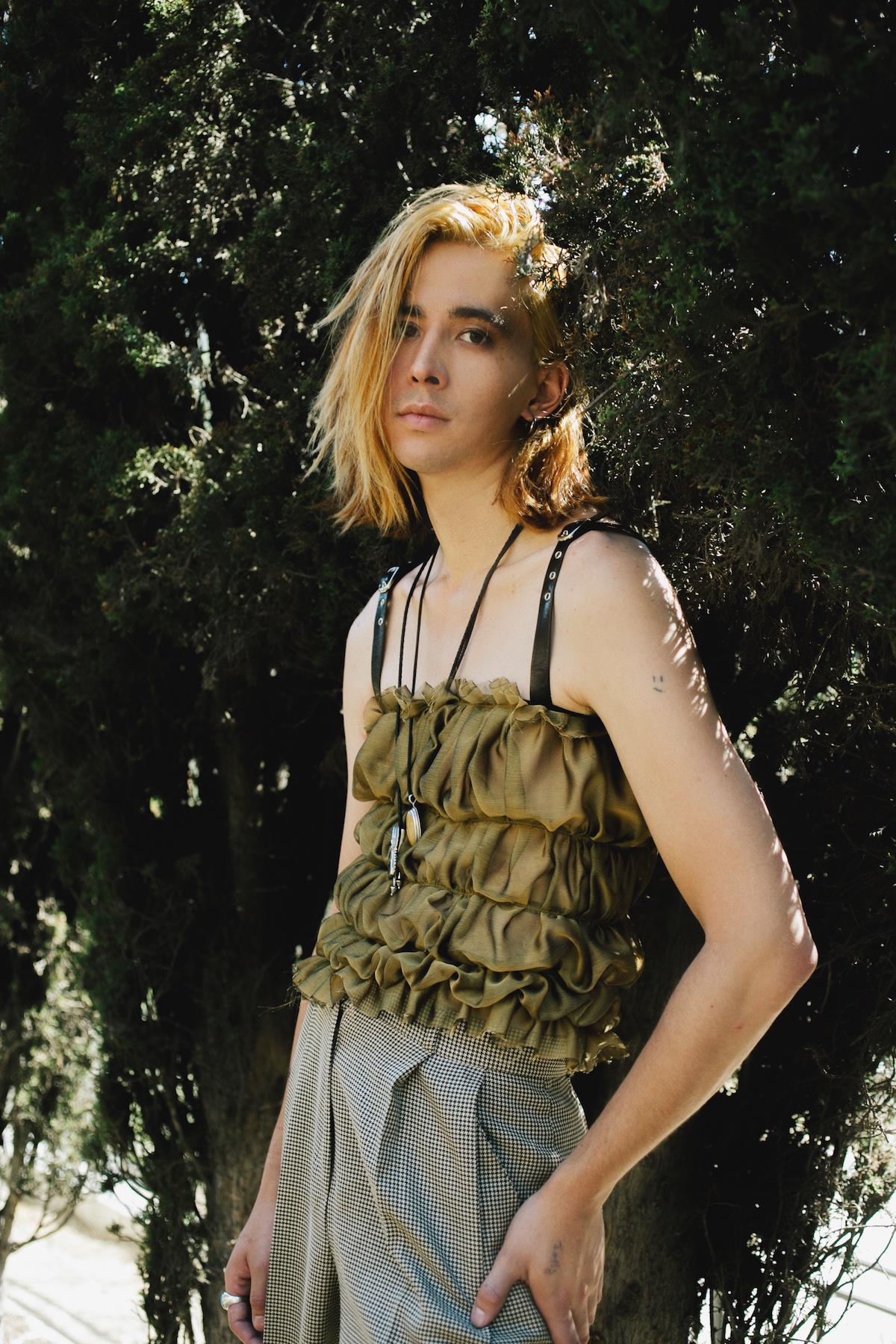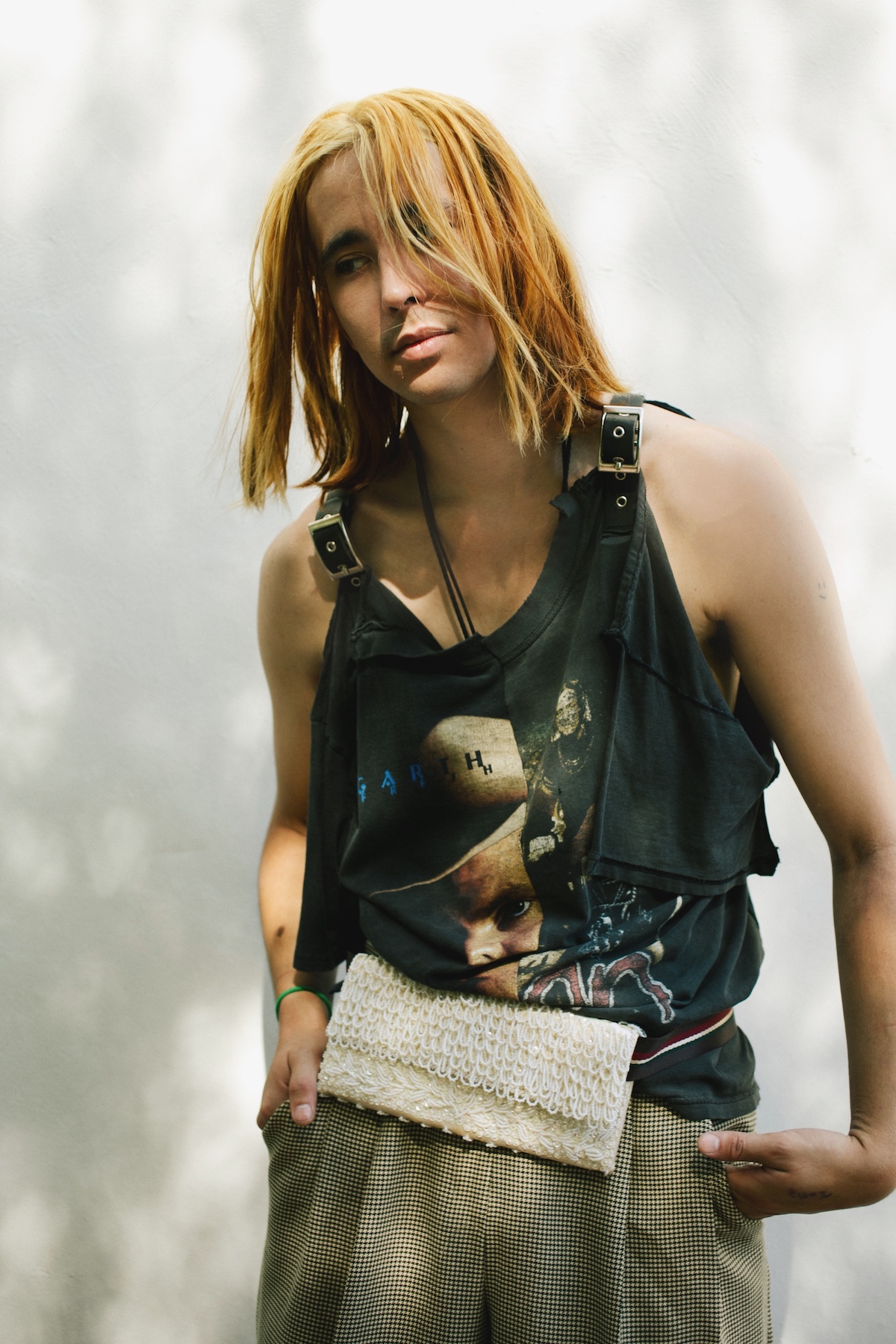On Sculpting Love and Heartbreak: An interview with Cullen Omori
Music — 14.11.18
 “You do so many things, and I love you for it,” Cullen Omori sings in helium harmony with himself, before adding “but I usually forget.” The opening song “Four Years” comes from Omori’s second solo album, The Diet, and reveals itself to be an exuberant declaration of devotion from someone easily driven to distraction.
“You do so many things, and I love you for it,” Cullen Omori sings in helium harmony with himself, before adding “but I usually forget.” The opening song “Four Years” comes from Omori’s second solo album, The Diet, and reveals itself to be an exuberant declaration of devotion from someone easily driven to distraction.
After the solo album, The Misery, which became his self-fulfilment packed with emotions, The Diet is a powerful modern indie-rock album that is buoyed by warped analogue pedals and tailor-made guitar tones. Omori winsome vocals crisscross 70s art rock and classic songwriting. The record as a series is something that can loosely be defined as love songs that metaphorically channel his frustrations. “There was a whole month in June where I found myself back in my parent’s house, ten years older than when I first started writing songs that ended up getting put out in the record,” he explains. Part of hyper-buzzy Chicago group Smith Westerns, 28-year-old Omori has proven he can still write brilliant pop without his bandmates.
We jumped on a quick call while he was driving from his home in Los Angeles to work. The streets were noisy, and Omori was casually smoking a cigarette while driving, reminding me of past road trips. We talked about the new album, Smiths Westerns break up, and future plans.
 Emilia Slupecka: What is your first memory of music?
Emilia Slupecka: What is your first memory of music?
Cullen Omori: When I started writing music when I was a teenager, I didn’t consider myself very musical nor did I consider myself very talented as a musician. I wanted to be signed by a real label and put music out to the wider public, and so getting my first record deal was really great. Even when I signed to Sub Pop, I didn’t know if I was going to have a second act as a musician or what my plan was going to be.
I had been on a bunch of labels at this point so when you find one that will implicitly back you up it’s great. Every label is going to say, “Oh we care about the art”, but they will only let you use it to a certain point. Sub Pop has been very generous and helpful in encouraging me to keep working and writing and putting that stuff out.
Where do you find your inspiration when writing music?
I think, in a weird way, it’s kind of a documentary process. I don’t try to make the songs autobiographical, at least not on this record. I wanted to blend terms of phrases that are interesting and that I think sound good and merge that in with feelings at the time or things that I’m going through. Whether or not I’m trying consciously to make it an autobiographical thing, or a snapshot of how I am feeling, or what I’m experiencing at that given moment that I am writing a song. Sometimes that is more intentional, other times I feel as though it just happens through osmosis. Usually, the way I start writing is when I am listening to some music – it can be new or old –but, for whatever reason, it makes me want to write when I hear something that I feel is interesting or really touching. I think that there is also that influence. The music that I’m writing is also an indicator of how I am feeling. If I am bummed out, I’m listening to the slower stuff. I will listen to only slower music or only nineties music that also finds its way into my writing.
Sometimes I am very conscious that I want to create music that is a particular genre and other times it’s more like I am going to bang around on the guitar and see what comes out. In hindsight, I really try not to make it super autobiographical, but these are definitely some factors that that play into how the song is created.
Do you find that a creative process that is different and outside of the box is better for you rather than following the guide when recording the music or writing it?
On this record, the writing process was much quicker than usual. Usually, it takes me about a year at the very least before I am even happy and can consider taking 10 or more songs to the studio to record. I go through a lot of different versions of songs. I am not always happy with how a chorus and a verse fits together, so I will change it. Especially after coming off the last record, I really wanted to make a point of doing everything as much by myself as possible as I really hadn’t had that opportunity before. I was also conscious that I tried to do it myself, but now I can have more people come in. The whole reason I started recording in the first place was that I had an offer to use Taylor Locke’s studio and have Taylor in the studio to help with it. Among the pool of musicians between Taylor and me, we were able to get different people out to play on the record. I still had that free power to make decisions, but it was nice to see how other musicians re-interpret and add on top of what I had created. I think that is some kind of magic that happens when you are in a band situation as there is that kind of collaborative process. I was burned out a couple of years ago, but I think that is beneficial to the strength of the record ‘The Diet’ as a whole.

What is the emotion that you attach to your new album in comparison to your previous solo album?
I think that the emotion between both records is similar. I don’t think that my mental state has changed that much, only maybe deteriorated a little bit. For me, I approached writing the music as I am going to go outside, what I normally do is kind of more write those love songs. I wasn’t as happy with the lyrics, so what I think that I can do well is if I start in a place that on the surface is this ‘love song thing’, which is universal and can mean whatever to anyone. By making the song loosely fit the description of what a love song is supposed to be, I wanted to play with the conventions of what you expect to hear in a love song, that has the guitar, you think of the beetles or other classics. It would be a challenge and I have more leeway to have more creative decisions if I set up that boundary for me to work in. Only 2 songs out of the 12 songs are actually remotely about an actual person. Everything else is my kind of using that format to talk about other things. Some of the songs begin as conversations which I am having with myself, where I am trying to romance myself or convince myself of something. The love song could be not about a person, but instead me and my anti-depressants, I have a love-hate relationship with modern medicine.
How did you feel after Smith Westerns decided to part ways?
I felt pretty good, I thought that it was time. With all breakups of some sort, one person is always more over it than the other, this time, unfortunately, everyone seemed to be on the same page. If you listen to what Max is doing now and what I am doing, I don’t know how much there is really to compromise between those two sounds. It wasn’t that we were trying really hard to hold it together, we were held together because we were into the same music and things were going well. It felt good because I was able to pursue myself musically. At the same time, there was a lot of my identity wrapped up in being in Smith Westerns. I had pretty much formalised my identity while I was on tour with that band. For better or for worse, the things that I did in that band I am still not haunted by and they still have relevance and importance in my life to this day. I think ultimately it was better for everyone musically.
How did “Four Years” come about?
That was probably one of the first songs that I recorded for this record. Right before I left for my European tour, my girlfriend at the time who I had been dating for 4+ years, broke up with me. After I got back from Europe, the lease for our apartment was up, so she left. I came back and not only did I not have my relationship, but I had nowhere to live. So I tried to figure out what I was going to do, what I ended up doing, was to move to LA. There was a whole month in June where I found myself back in my parent’s house, ten years older than when I first started writing songs that ended up getting put out in records. So, a weird familiarity and some cynical things were stirring up. But at the same time, I think that a lot of the stuff that I wrote for Smith Westerns was because I was younger. I don’t think I had the experiences that I needed to be a deep lyricist or musician. I thought that worse stuff had happened to me before, but really the floodgates of shit happening to me all occurred after I released it.
“Four Years” is probably one of the only songs that deal with the actual relationship that has some type of real-world basis. So, I started writing in my parents’ basement on one of the first guitars I ever owned, just kind of fucking around and it just wrote itself. As stupid as it sounds, it just kind of happened. Most of the time I write a record, it will take a year to come out, then you release it. I don’t usually write within that period because I don’t know what I want to do or I don’t know what the reception is going to be. For me, it was really strange but also really great being able to sit down so closely after the record was done and actually be able to write something decent as that is not always the case.

What would you say is your favourite song that you have ever written?
I don’t even know.
Or, the most important song?
That was probably “Weekend” because that was the one that enabled me to live the life that I have been for the last 6-7 years. It really helped Smith Westerns at that time, and the work that I did in that band paved the way for me to continue making music.
If you could work with anyone, alive or dead, who would it be and what would you do?
I would want to work with a producer that is super pop. Not that I really want to copy the Coldplay sound, but it would be cool to have Brian Eno produce something because he has done a ton of stuff. Having Paul Epworth or Greg Christian make my songs, or even Britney Spears songs or Adele songs. I think that would be hilarious, not that I would ever use it. I have never been in the commercial or pop world.

Do you think that growing up in Chicago influenced you as a person and your music as well?
I think that Chicago still has a hugely varied and high musical taste. I think growing up there you are exposed to a lot of stuff as it is a big city. At the same time, it’s not like a real hub of art and music. When people start coming to check your band out, it’s not like New York where if you go to the right people, you can play your first show, and it can be sold out with lots of record labels. Whereas in Chicago, no one that has a record label is living there or if they are they’re not really in view. So, you get to really hone your live show and the songs and can really workshop it in a way that you wouldn’t t be able to in another city.
Your new record is out later this week, what is happening after that?
The plan is just to support and tour the record. Last time, it got cut short because of the budget and other things out of my control happened, so it was really hard to continue touring. My plan now is work in LA and to continue blitzing the record as much as possible. I never expected the record to come out and immediately blow up or anything. I think it is definitely going to be a slow burner if it is a burner at all. I believe that the best way to go about it is to keep touring at a smaller level and really work on the songs and hopefully they will catch on.
You can listen to Cullen Omori’s album The Diet after its mid-November release via Sub Pop Records.